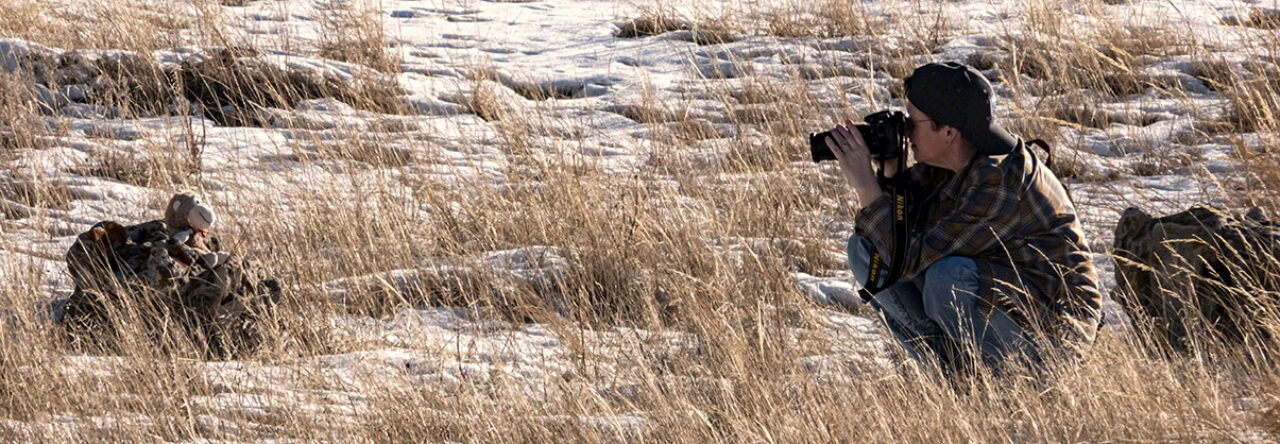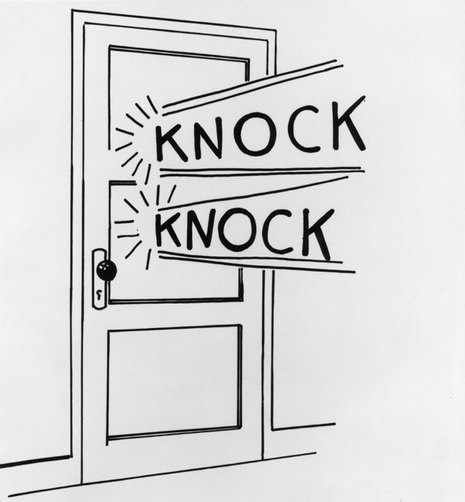My eyes were fixated on the clock. It read 7:43 a.m. Karla would be knocking on my door soon. Every Monday, Wednesday, and Friday, we walked together to Bessey Hall. She had a class and I went into the Anthropology lab to clean and label artifacts.
I was stretched out on the couch under my bald eagle blanket. I stared at the red numbers on the digital clock and watched it turn to 7:44 a.m. There was a bang on my door. My eyes rapidly shifted to my doorknob. Did I remember to lock the door last night?
I thought about opening the door. I knew it was Karla, but my brain was screaming “danger.” I curled into the fetal position and covered my entire body. I knew it wasn’t true, but, whenever I felt in danger, I hid.
There was another knock. Louder. Prolonged. The doorknob rattled. I heard my name. I sat up, crawled to the far end of my couch, sat with my knees against my chest, and covered myself. I began rocking back and forth, hoping whatever was on the other side of the door would go away and not hurt me.
After a third round of knocking, I heard footsteps going down the stairs. It was quiet. I didn’t know it at the time, but everything I had just experienced was a trauma response.
After a horrendous freshman year at the University of Nebraska-Lincoln, necessitating two room changes and three roommates, as well as spending most nights sleeping in the dorm’s TV lounge, I had asked my mother if it would be possible to get a single room for my sophomore year. She agreed, but with the knowledge I’d have to help pay the costs. It was a sacrifice I was willing to make.
I didn’t know or understand it at the time, but the series of unfortunate events from my freshman year was my way of using terrible coping skills to survive. I didn’t know I had PTSD. I didn’t know I could get it. PTSD was for dudes like John Rambo, 19-year old girls alone in their dorm rooms.
Because I didn’t know how to deal with anything, I didn’t even know I needed help. I knew I was different, but I didn’t know why. I did what made sense to me to feel safe even if it looked irrational to others.
While I enjoyed my single room, there were some factors I hadn’t considered adequately. My room, 1301 Neihardt, was at the end of the hall on the top floor. I assumed since it was the back stairwell to my floor, it would be quieter. I quickly learned that was not the case.
My door, particularly my doorknob, was at the end of the railing. People often grabbed, rattled, or shook it as they arrived at the top of the stairs. It was mostly due to poor design and inattention, but that knowledge didn’t help my hypervigilance.
I quickly ran to the door to make sure it was locked. Of course it was. I always locked it before I went to bed and Karla had permission to come in anytime it was unlocked. I ran back to the couch and remained curled in the fetal position, listening to all the sounds in the hallway and on the stairs. My blanket was tucked tightly all around my body, in the mistaken reassurance no one could get past it to harm me even if they managed to break in.
I spent the morning tensed up with tears rolling down my face and into my ears. Sometimes, a tear would stream down my face and gently kiss my lip before rolling off the side of my face. Its saltiness added to the sadness and fear of the morning. At times, my mind shut down. I only knew I was alive because I could hear my heart beating. I wondered what was wrong with me.
Skipping class was a common occurrence for me. My GPA usually hovered near the “you’re going to be on academic probation mark” on so many occasions it became a meaningless statistic. I just wanted to make it to tomorrow. More often than not, I hoped tomorrow would be better than today, and sometimes it was. I always wanted the thoughts in my head to go away. The problem was I didn’t know how to make it happen, I didn’t know what I was experiencing, and I had no frame of reference to even begin to understand what was happening to me.
I endured these bouts with traumatic memories, flashbacks, and nightmares, failing to know how to deal with them or to understand why they were happening, for another 26 years. I spent those years in constant anguish. It came in many forms, including not feeling normal, not fitting in, frustration, being an iceberg of anger, being nonfunctional, and feeling unwanted and unworthy of being a human being. There was, so I thought, nothing I could do right and no purpose in existing.
I laid on my couch that day, staring at nothing, remembering everything I didn’t want to. My mind shifted between numb and irrational thoughts of danger. It wasn’t until lunchtime I actually got off the couch. Karin, Karla’s twin sister, came by to see if I was in.
When I answered the door, she said, “Were you here this morning when Karla came to get you?”
I replied I was. I always was. Some days, I just couldn’t function, not even to get off the couch. Karin just smiled.
“Do you need to take a shower before we go to lunch?” she said.
I smelled my armpits. “Nah, I’m good.” I went over to my sink and looked in the mirror that hung above it. I’ve always had awesome bedhead. I put on a bra, pants, socks, and shoes and we headed down to the cafeteria.
Today, I’m still learning all the things that trigger my PTSD. Some days I’m successful. Some days I’m not. I still get the shit scared out of me when there’s a knock on the door and I don’t know why. I’m not going to answer the door anymore today than I would have in 1989, but at least I know the response happens because of something in the past I can’t remember. One day, I’ll open the door. It just won’t be today.


Leave a Reply